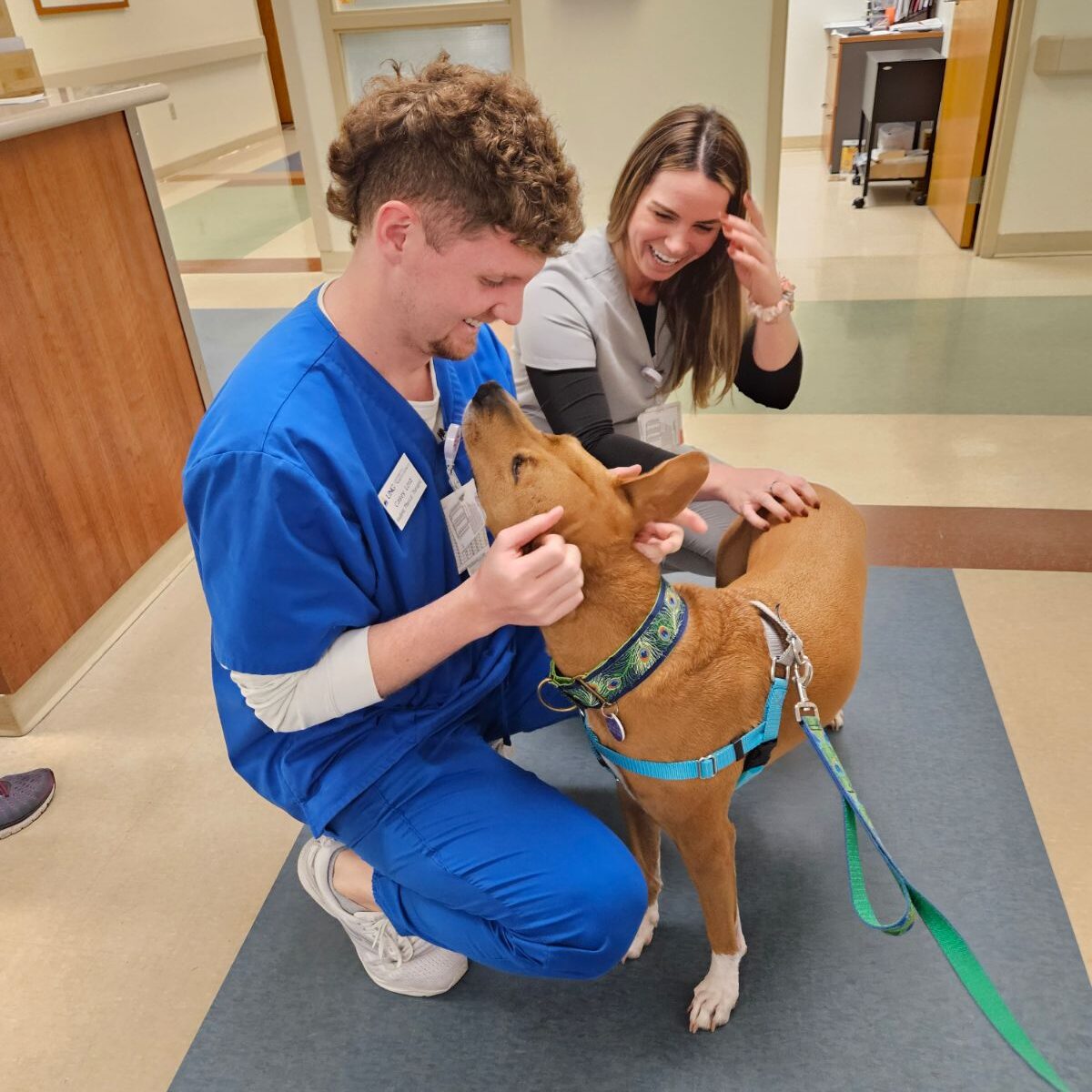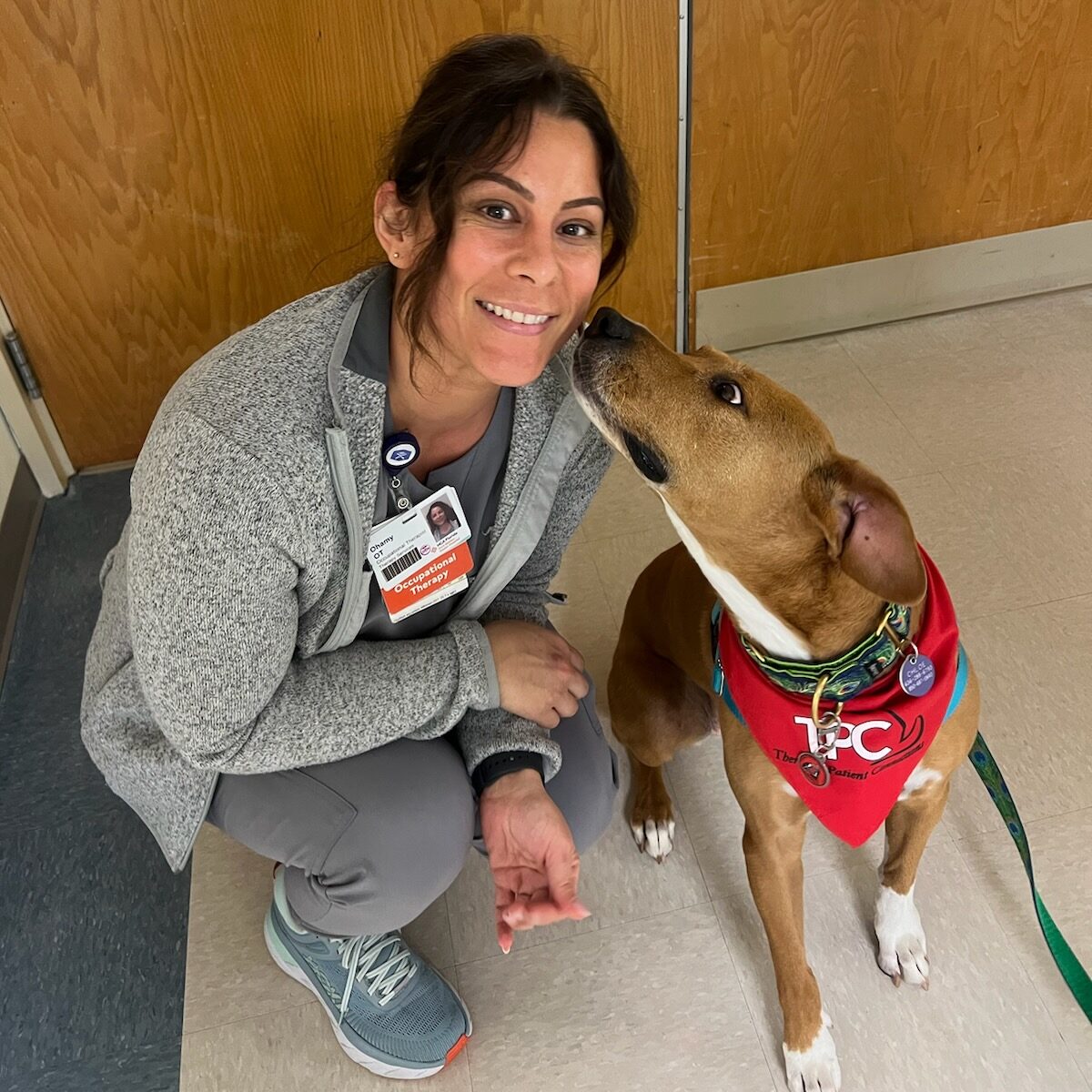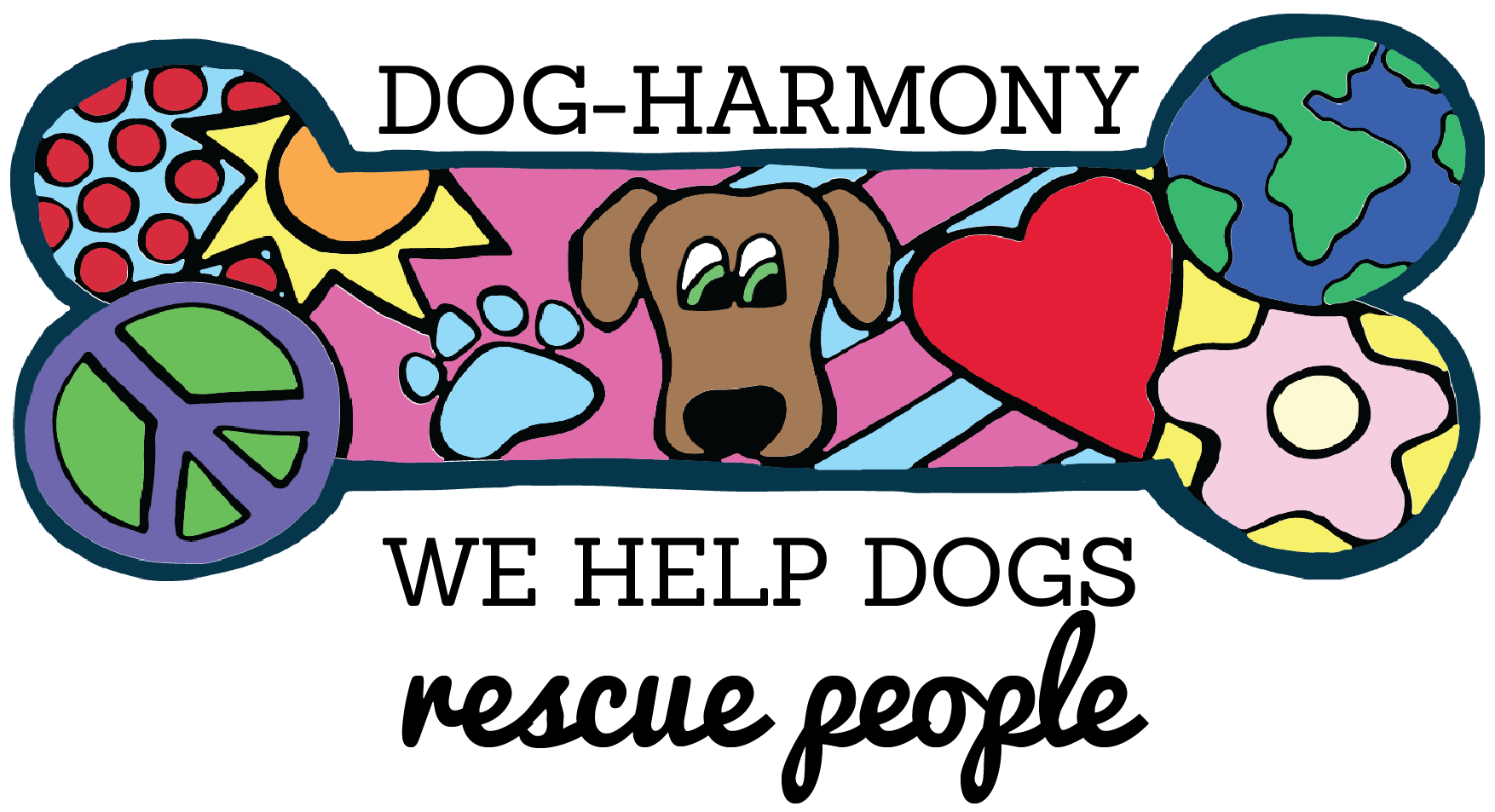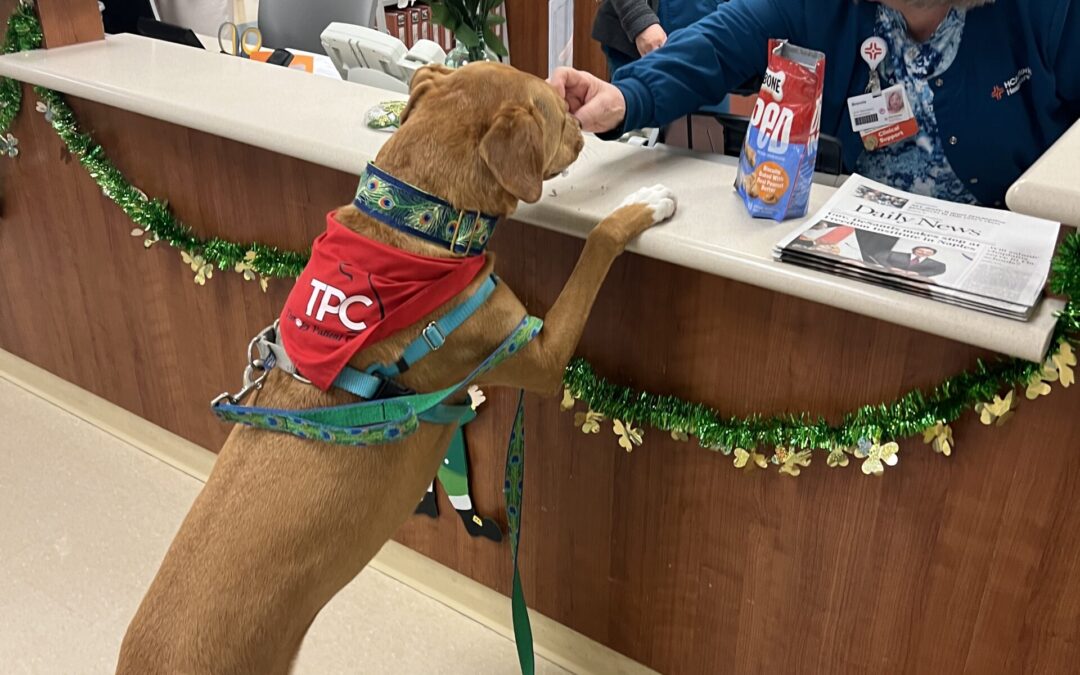Written by Christie Solomon
An exuberant, reddish-brown puppy found herself living on the street in northwest Florida. Originally thought to be male, she was called Cleo by Animal Control. She was taken to two different animal rescue agencies before finding her place, the second of which determined she was, in fact, a girl, and changed her name to Chloe. When she was ready to be adopted into a “forever” home, Chloe was dressed up in cute costumes to disguise her large size, strength, and likely pit bull heritage, and she even appeared in the local news.
After more than six months at the shelter, a new volunteer who did not intend to adopt a dog appeared. It was love at first sight and the would-be volunteer immediately dropped to the ground to greet Chloe, who excitedly kissed her face. The volunteer took Chloe home on a trial basis and the pair began working diligently on training with Nancy Bown, CPDT-KA and founder of Dog-Harmony. Chloe gradually gained confidence and overcame her fear of garbage trucks and plastic bags.
Bown, an evaluator for Intermountain Therapy Animals, recognized that Chloe had the right personality to become a therapy dog and encouraged the pair to become evaluated. In 2023 at age six, Chloe and her mom became a certified therapy dog team with Dog-Harmony. They now volunteer at HCA Florida Healthcare’s Rehabilitation Institute of Northwest Florida in Destin.
Each week, Chloe brings 65 pounds of love and joy to staff and patients – and the occasional tears to patients who miss their dogs. Her favorite place to visit at the rehab center is the physical therapy (PT) gym, where she can interact with the PT patients. She is a great aid, assisting with repetitive arm movements as a command to sit, stay, or play fetch.
One day, Chloe almost fell asleep standing up as she received an excellent massage from a patient, who she distracted from blood pressure measurements before the patient began her work in the gym. The patient’s blood pressure visually dropped on the device’s screen as she patted Chloe.

A fellow volunteer at the rehab center, Sue Marks, said of Chloe:
“The staff have to give Chloe a hug, pet, or scratch and they tell us which patients in specific rooms would love a visit from Chloe each week. We have learned so many pet names and breeds belonging to the staff and patients. A smile after a visit from Chloe goes a long way. She is so well-behaved. She takes treats nicely. She makes my day on Fridays, too.”
Appreciating Chloe’s regular visits, the staff at the rehab center awarded Chloe the prestigious honor of Employee of the Month in February 2024.
Today, roughly 50% of American households (approximately 65 million) have a dog at home. Nearly all pet owners in the U.S. (97%) consider their companion animals family members. Living with dogs at home reduces stress and anxiety, lowers blood pressure, and improves the mood of humans.
Medical studies have shown that patients interacting with qualified therapy dog teams have been able to heal and recover faster. After only a few minutes of interaction, it is evident how profoundly therapy dog teams affect patients and staff as they benefit from a “bit of home” in a difficult clinical setting.
In an inpatient rehabilitation unit of John Hopkins University’s School of Medicine, doctors realized “patients who participated in animal therapy were able to meet goals faster by involving the animals – standing for longer periods while patting a dog, for instance.”
Dog-Harmony is experiencing an overwhelming demand for qualified therapy dog teams in healthcare and a significant shortage of qualified therapy dog teams in northwest Florida. The 501(c)3 non-profit provides complimentary, ongoing training for therapy dog teams, coordinates their placement in healthcare facilities, accompanies team visits, and provides management and oversight for its healthcare partners. Dog-Harmony spends an average of 10 hours of orientation, which is provided at no cost to the teams, and is required for each team after the evaluation resulting in certification.
Because of Dog-Harmony’s significant experience and multiple relationships with national pet therapy organizations (i.e., Intermountain Therapy Animals, Therapy Pet Connections, Pet Partners, etc.), the non-profit can manage and assign qualified dog therapy teams based on abilities, temperaments, and clinical requirements.
The non-profit also spends a significant number of hours on continued monitoring of team performance and ongoing therapy dog team training specific to animal-assisted therapy in healthcare.

According to Dog-Harmony’s regionally-focused survey of 895 respondents in 2023, 31% of people think animal-assisted therapy is “very important” and most responded with interest in helping to support by volunteering their time, skills, and knowledge. Dog-Harmony also needs financial support to sustain the hospital therapy dog program, which is provided at no cost; and for interested therapy dog partners to start the certification program required to volunteer at regional healthcare facilities.
To support Dog-Harmony’s therapy dog program, currently managed for HCA Florida Destin-Fort Walton Beach and Twin Cities hospitals, and expand its reach to additional healthcare institutions in the area, visit Dog-Harmony.org/donate.

